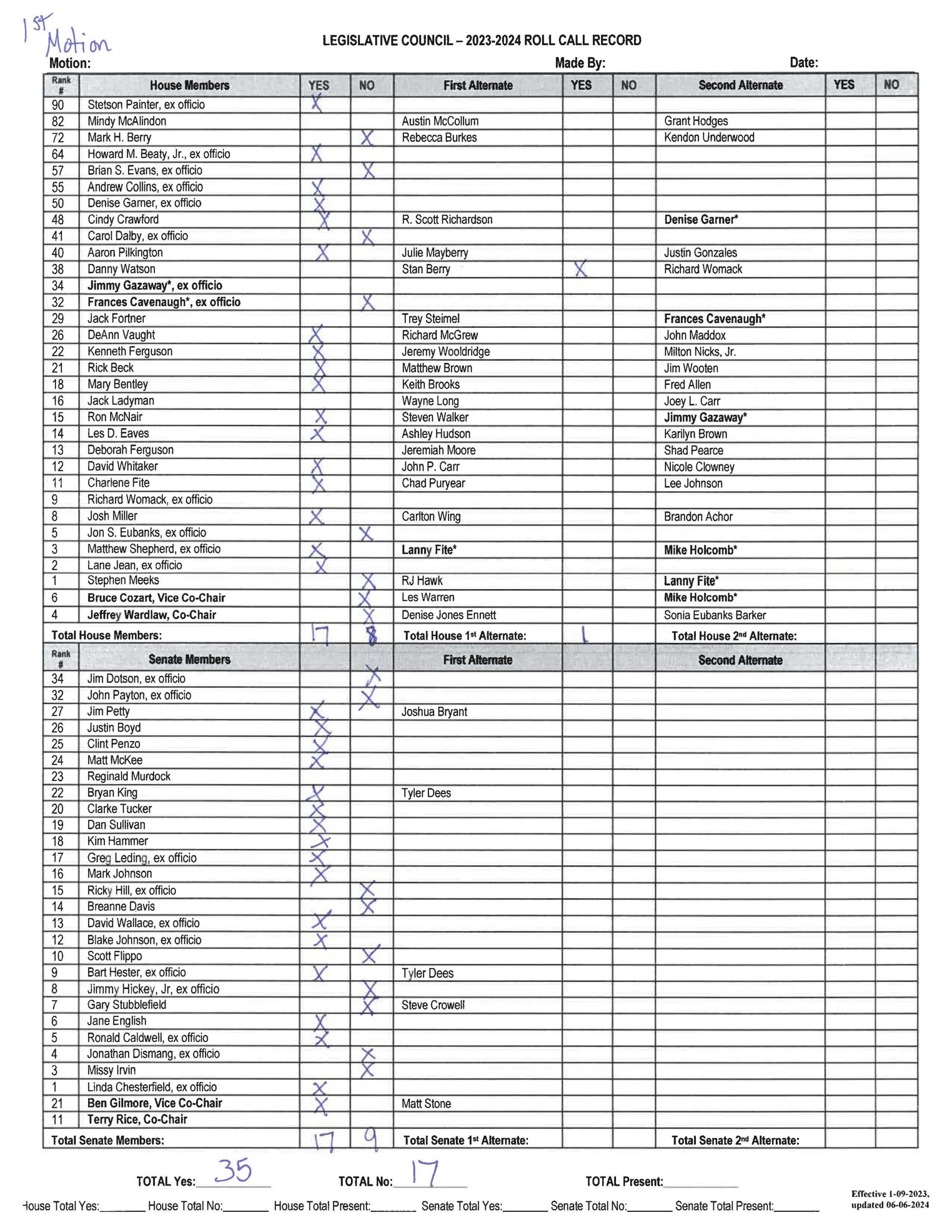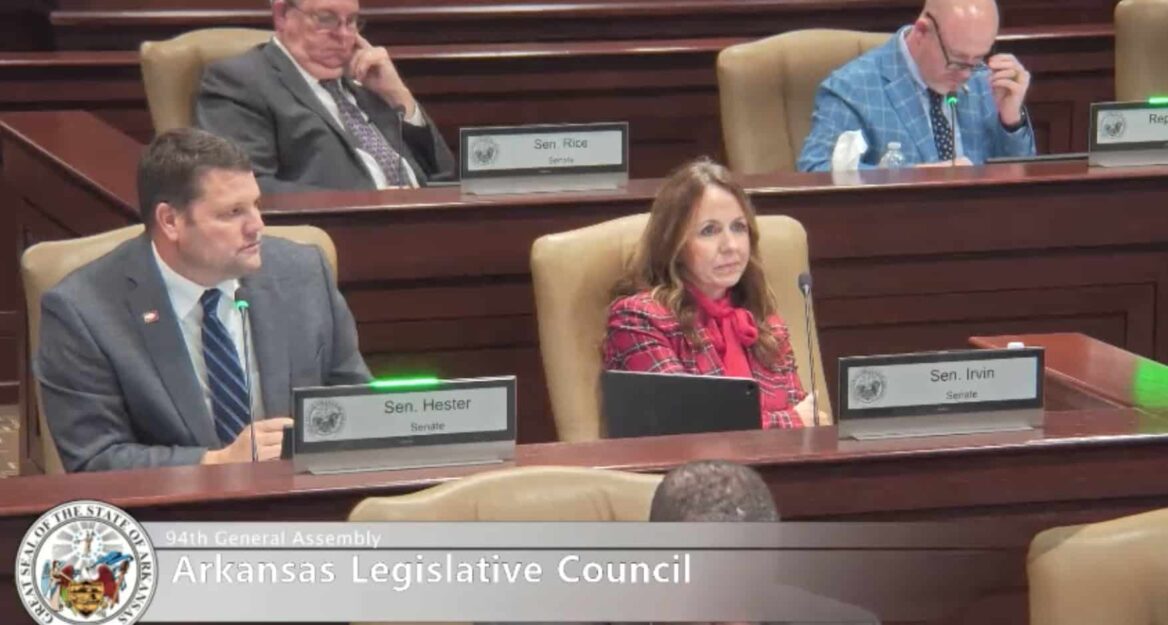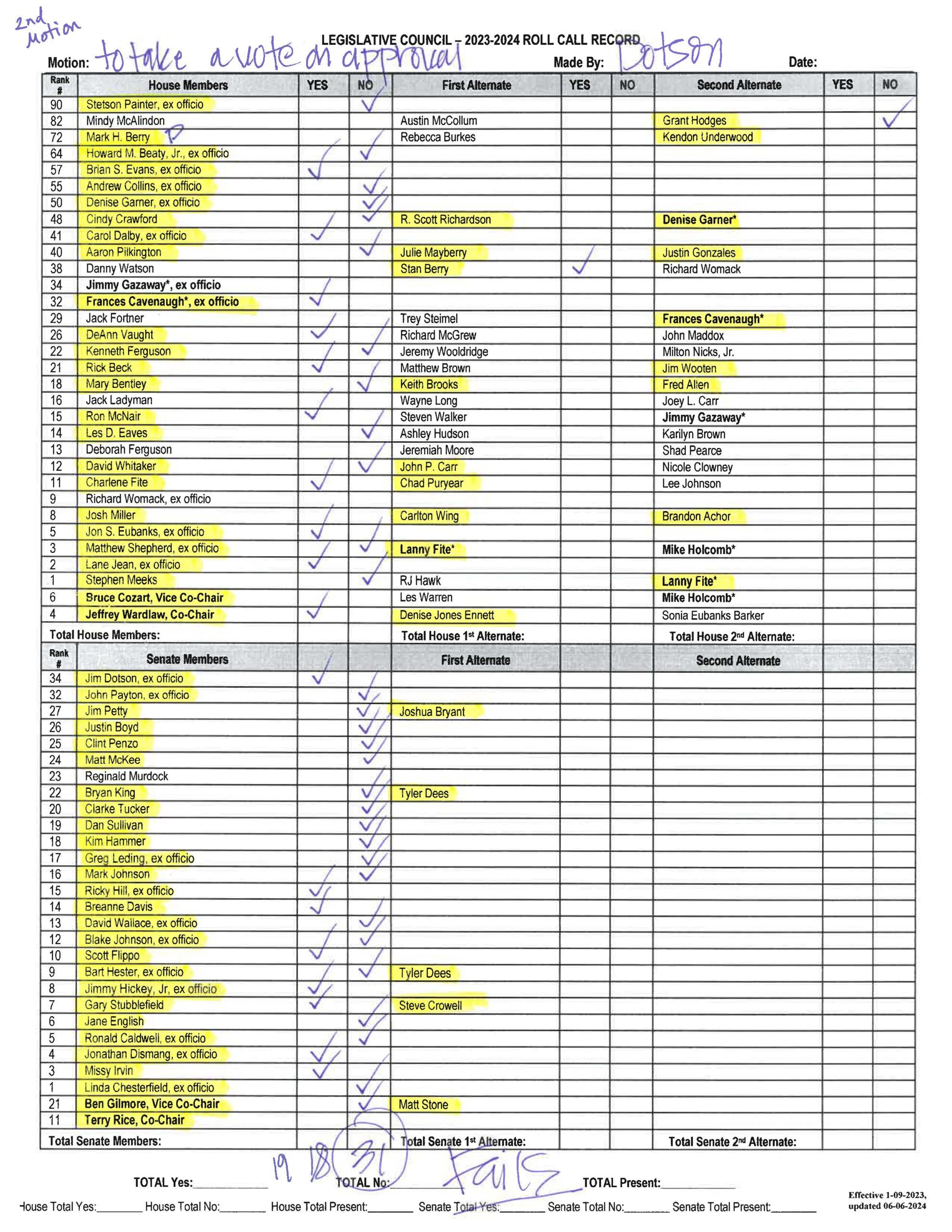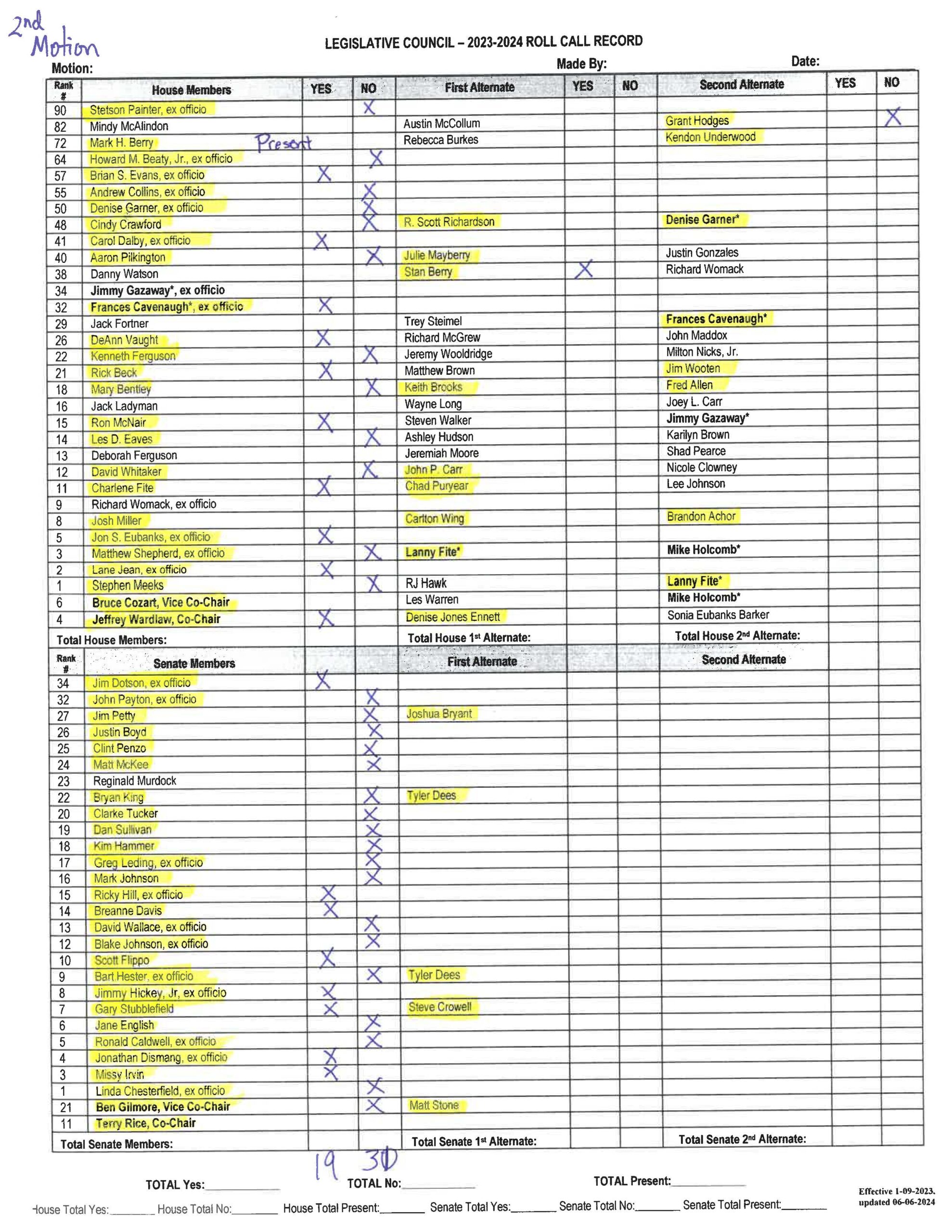Arkansas lawmakers approved a new regulation requiring pharmacy benefit managers (PBMs) to include dispensing fees in reimbursements to pharmacies for prescription drugs. This rule, replacing an expiring emergency measure, authorizes the state insurance commissioner to determine the fees. PBMs act as intermediaries between drug manufacturers, distributors, pharmacies, and health insurers.
Initially, the Arkansas Legislative Council rejected the proposal a day earlier. Critics argued that Rule 128 failed to address complaints brought to the department and instead imposed a new tax on Arkansas citizens. Watch Thursday’s meeting here.
On the following morning, December 20, 2024, during the Arkansas Legislative Council’s Joint Committee meeting, Co-Chair Rep. Brian Evans (R – Cabot) presented the Administrative Rules Subcommittee report and moved for its adoption. Senator Mark Johnson (R – Little Rock) made a substitute motion to pull Rule 128 from the report for a separate vote. If not separated, the report’s adoption would have automatically upheld Thursday’s earlier decision not to approve Rule 128. (Watch Friday’s meeting here.)
Johnson’s motion to separate Rule 128 initially failed in a voice vote. However, he immediately requested a roll call, putting legislators on record. As often happens, the recorded vote shifted the outcome.
Here is that first Roll Call from Dec. 20th: M. Johnson Substitute Motion 12/20/24

Johnson’s substitute motion to reconsider the rule gained traction after a roll call vote. (also, a hot mic revealed some members were unimpressed with Thursday’s testimonies: timestamp: 09:41:21).
Senator Bart Hester (R-Cave Springs) quickly moved to call to question, shutting down further debate. His motion passed, but the process was far from over. Senator M. Johnson’s substitute motion to pull Rule 128 for a separate vote introduced complexity. Because the subcommittee initially recommended not approving Rule 128, the full committee had to take up that vote. That vote failed.
Senator Linda Chesterfield (D-Little Rock) then made a motion to approve Rule 128.
During this debate, Senator Johnathan Dismang (R-Little Rock) expressed concerns, stating, “I can see where this is going today. But false hope is a dangerous thing. And we are giving false hope to pharmacists that somehow, something is going to be fixed by what we’re passing. But what we’re doing is intruding on contacts. We are saying as the government, ‘We know better.’ I’ve never thought that to be my job here. But today, that’s what we’re saying.”
Senator Jimmy Hickey (R – Texarkana) also spoke against Rule 128. He said it doesn’t matter whether you’re for or against Rule 128, it does not line up with the Statute the General Assembly passed during the legislative session. “The people put a Constitutional Amendment in to make sure that our rules align with Statute. It’s already been testified that they don’t have the ability to do this. This body is circumventing the General Assembly while we’re in session. And I know my colleagues never want to think another tax is involved, but as Chair of Revenue & Tax, this may be a horse of a different color, but I know a tax when I see one, and this is a tax on your citizens.”
Hickey concluded his comments by calling for accountability with this vote.“If this body is going to act like the General Assembly, then I want it to be the same way it is on the floor. I want the votes to be recorded.” (See our recent article: Legislative Committees: Don’t Let the Voters Know)
Co-Chair Rep. Jeff Wardlaw (R-Hermitage) attempted to finalize approval of Rule 128 without objection, but Senator Jim Dotson (R-Bentonville) was ready with his objection and moved to request a vote regarding not approving Rule 128. Senator Ricky Hill (R-Cabot) seconded, leading to another round of voting. Ultimately, the motion to disapprove Rule 128 failed, and the rule was adopted after extensive debate.
So why do we tell you all of this?
Many voters don’t have the time or resources to sift through days of agendas and meeting videos. It shouldn’t have to be this difficult. Voters deserve transparency about how their legislators vote, whether in committee or on the floor.
When legislators are required to go on record, their decisions often shift. For example, legislators opposed Rule 128 on Thursday—so what changed by Friday morning? Was this the result of a strategic whip operation?
Important questions emerged during the deliberation:
– Does the Insurance Commissioner have the authority to impose this fee, which some are calling a tax?
– What impact, if any, will this have on the state budget?
– Does it interfere with private contractual agreements, increasing dependence on government?
– Does it expand the scope of government?
– Most critically, does this rule effectively create an additional tax on you?
These are questions worth examining, as they highlight the rule’s potential implications.
You can watch the full proceedings, including Thursday’s discussions, in the meeting recording.
Below are the votes for the roll call on the objection: dotson2ndmotion





